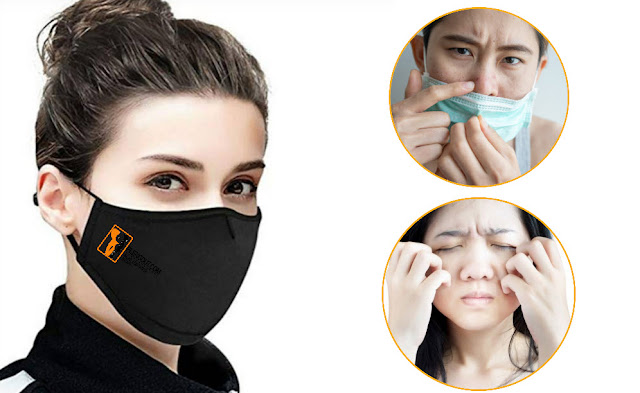Wearing a mask is a must during the current COVID-19 pandemic. Even so, we also shouldn't be careless and use masks carelessly.
There are a number of things that need to be considered regarding the use of this mask. Especially routine mask changes that need to be done.
So far, many people often forget to change masks regularly. In fact, using the right mask is the key to avoiding COVID-19 infection.
Research results in December 2020 revealed that the use of face masks could reduce the number of additional infections by 47 percent. Therefore, knowing when is the right time to use it and replace it is important.
5 signs to immediately replace the nasker with a new one
There are five conditions we need to know about when we need to replace this mask. Reporting from Livestrong, here are various signs that you need to know regarding when is the right time to replace a mask with a new one.
When feel uncomfortable
As time went by, masks that were previously comfortable to use became increasingly uncomfortable. With frequent washing, the fabric may shrink or stretch and the straps can also lose elasticity.
When masks start to feel uncomfortable to use both on the mouth and nose, or when you experience problems using them, this is a sign that you need to change your mask.
"When we use masks for a long time, the rubber on the ear becomes loose so that the size that fits on the chin and over the nose is no longer the right size," said Chris Sulmonte, MHA, lecturer at Johns Hopkins Hospital, Baltimore.
The mask begins to break and cause skin problems
When It Starts to Break and Fade
Washing masks many times can make the fabric fade and begin to damage. In fact, not infrequently masks can start to have holes.
"It is better to treat masks as you would under underwear," explained Sulmonte.
"Wash consistently and make sure there are no damage and holes in the cloth. Raise the cloth up high and see if the cloth is thinning. This could be an indication of when to change the mask," he continued.
The mask has the wrong size and is too old
When it hasn't been washed for a long time
Based on the guidelines, it is recommended that you change the cloth mask every day or when it gets dirty. The longer the mask is used, the more prone it is to be contaminated with bacteria.
Washing the mask every day is important in preventing further problems. Exposure to bacteria when you use a mask for a long time or from your mouth can make the mask dangerous when used for too long.
When Using Improper Masks
The use of masks that are not the right size and material can lead to problems. Masks that are too loose or too narrow can prevent the filtering function from working properly.
Make sure to choose a mask that is really appropriate to use and can filter out viruses. Also, pay attention to its size to prevent other problems.

